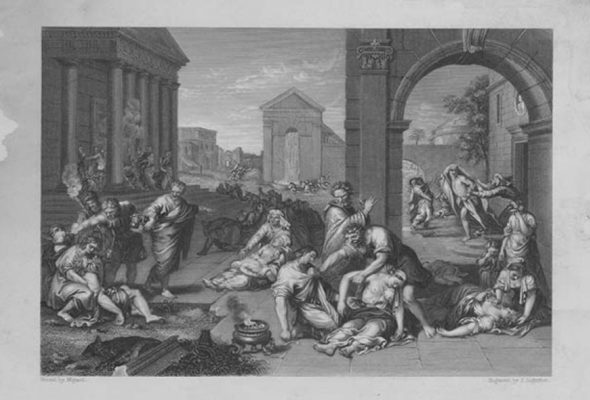The following is an except from Andy Crouch’s article “Love in the Time of Coronavirus”. You can read the whole article here, but we wanted to highlight and share this particular portion.
The Roman world was full of plagues. Epidemics regularly decimated cities and regions. Though ancient people did not understand the germ theory of disease, they knew enough to flee cities, if they had the means to do so.
The first Christians, who saw themselves as the household of God in their cities, did not flee the plagues. They stayed, and they served. In his book The Rise of Christianity, sociologist Rodney Stark develops a statistical argument that this commitment to providing meaningful care to people stricken by the plague was, all by itself, a major contributor to the growth of the church in the first centuries of the common era.
After you had recovered from the plague, after all, where would you want to worship? The pagan temple whose priests and elite benefactors had fled at the first sign of trouble? Or the household of the neighbor who had brought you food and water, care and concern, at great risk to themselves?
When this plague has passed, what will our neighbors remember of us? Will they remember that the Christians took immediate, decisive action to protect the vulnerable, even at great personal and organizational cost? Will they remember that, being prepared and free from panic, the households of their Christian neighbors were able to visit the needy (while protecting them by keeping appropriate social distance!), provide for their needs, and bring hope? Will they remember that, having ensured safety in all the ways we could, we still gathered to worship and praise God together, week after week, celebrating the resurrection — that even as we ceased doing inessential things, we made clear that serving and worshiping God was the greatest and most essential task of our lives?
How will we move the horizons of possibility, not just for those we directly lead, but for our whole culture, in the time of coronavirus?
More than ever in my lifetime, the direction of the culture around us, and the future of all those we love and care for, is quite literally in our hands. May God direct the decisions we make, and the way we communicate, today.



